Proche
| Nom du produit | NUMERO D'INVENTAIRE | Fabricant | Année de production | Paramètres | ||
|---|---|---|---|---|---|---|
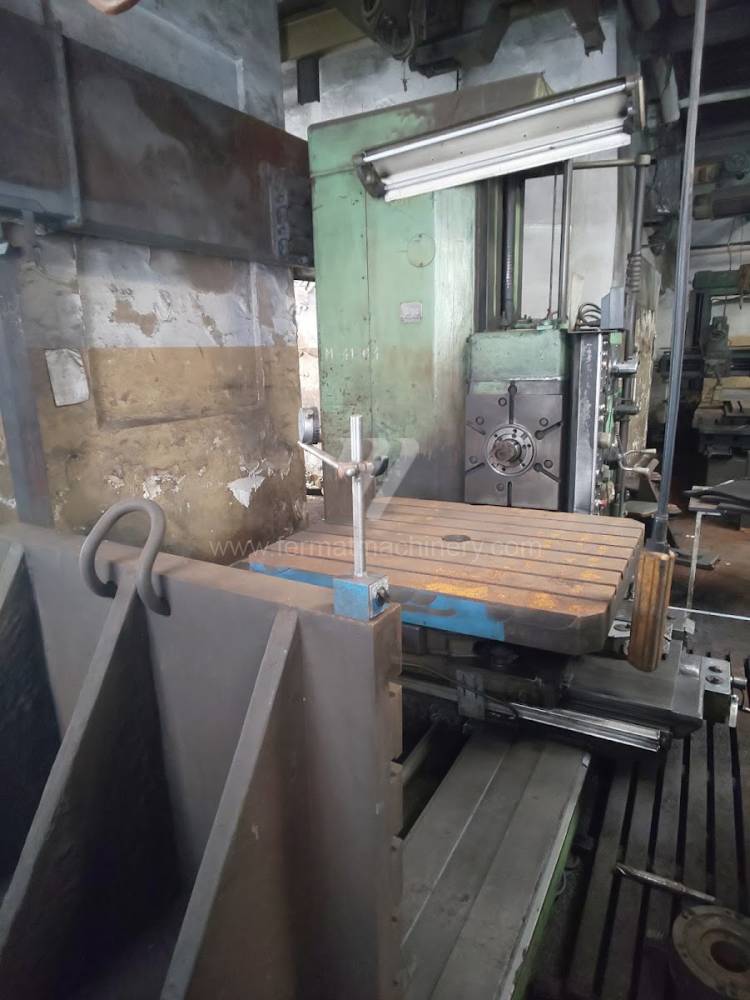 |
2622B |
231110 | Stanko Russia | 1975 | Diametre de travaille de broche: 110 mm Course X: 1000 mm Course Y: 1000 mm Vitesse de broche: 12 - 1250 /min. Refroidissement par axe: NON Extension du curseur (W): 710 mm |
|
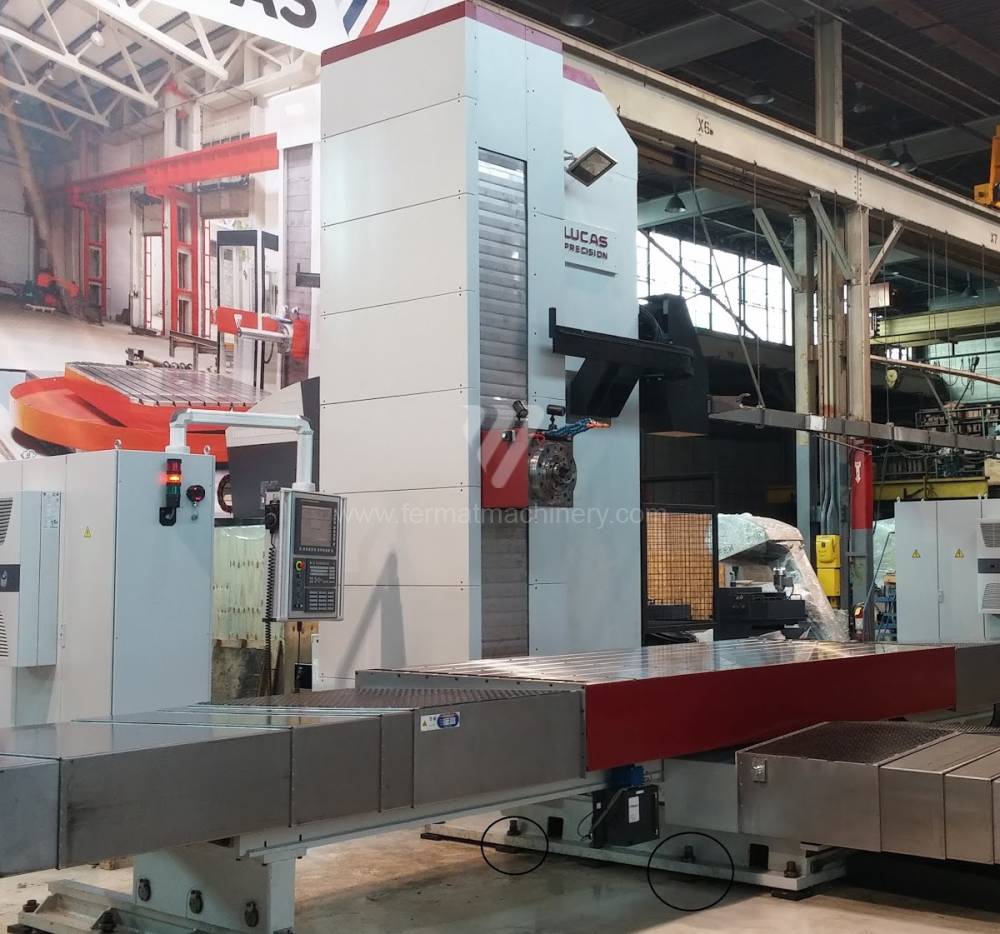 |
40T |
182013 | Lucas | 2018 | Système de contrôle Fanuc: 0i-MF Diametre de travaille de broche: 130 mm Course X: 3657 mm Course Y: 3048 mm Vitesse de broche: 10 - 3000 /min. Refroidissement par axe: OUI |
|
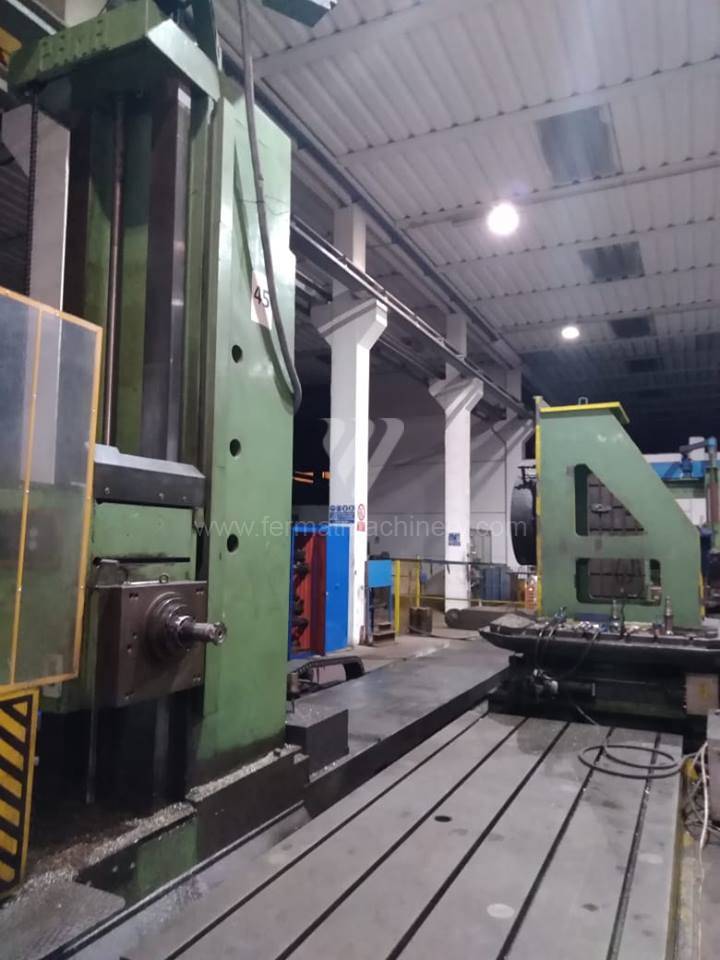 |
ACC 127-280 |
231965 | PAMA | Système de contrôle ECS: Diametre de travaille de broche: 127 mm Course X: 7500 mm Course Y: 2500 mm Vitesse de broche: 0 - 2000 /min. Extension du curseur (W): 300 mm |
||
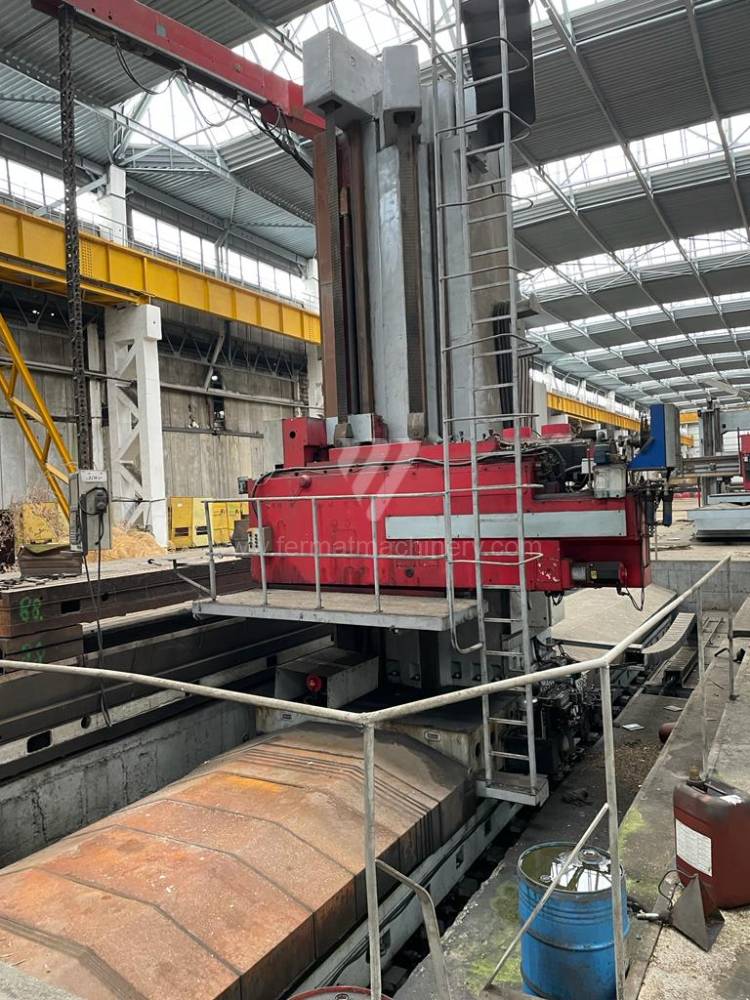 |
AFP 180 |
221138 | Titan | 2009 | Système de contrôle Fanuc: Fanuc 32i Diametre de travaille de broche: 180 mm Course X: 9130 mm Course Y: 3980 mm Déplacement de travaille Z: 1900 mm/min Axe W: 1200 mm |
|
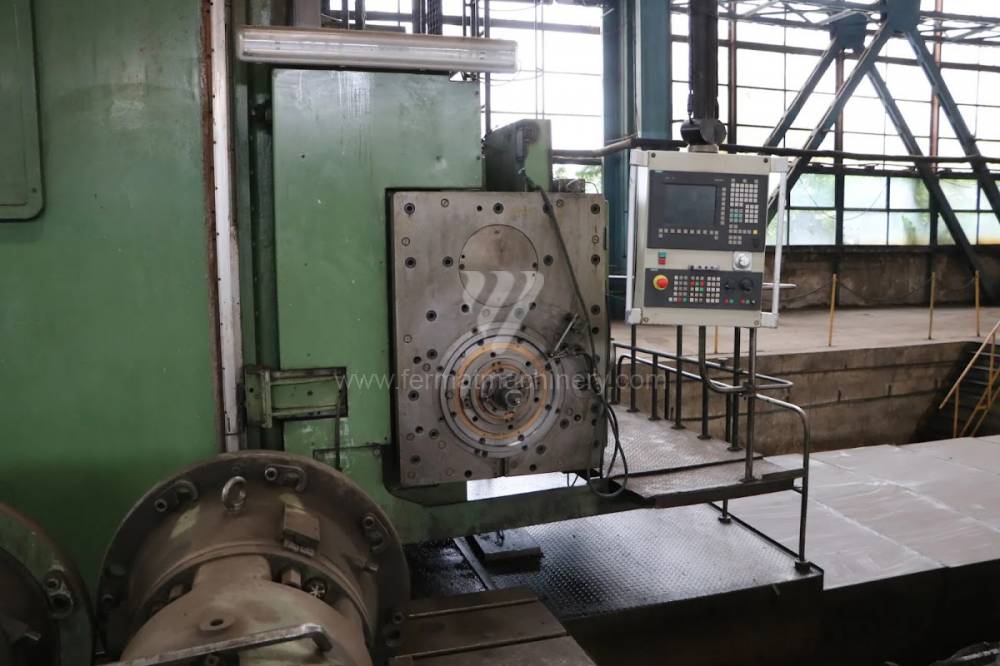 |
AFP 180 |
241054 | MITSUBISHI ELECTRIC | Système de contrôle Siemens: Sinumerik 840 D Diametre de travaille de broche: 180 mm Course X: 13 000 mm Course Y: 4 500 mm Vitesse de broche: 2 - 420 /min. Extension du curseur (W): 1 350 mm |
||
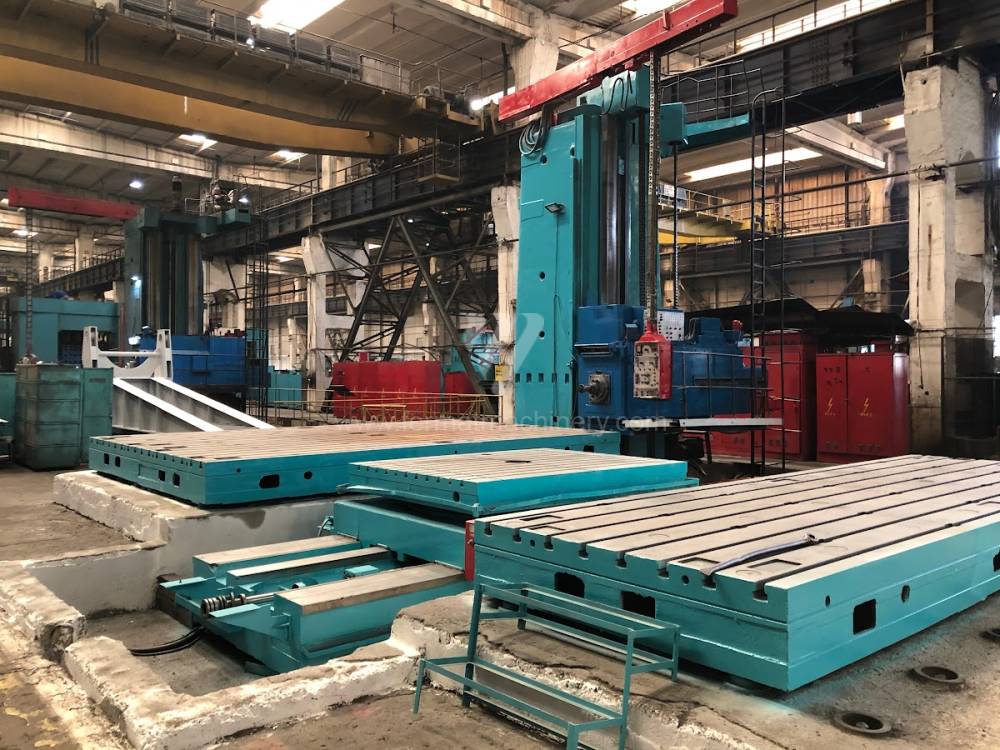 |
AFP 180 |
211583 | Titan | 1980 | Diametre de travaille de broche: 180 mm Course X: mm Déplacement de travaille X: 10000 mm/min Déplacement de travaille Y: 3800 mm/min Déplacement de travaille Z: 1900 mm/min Axe W: 1150 mm |
|
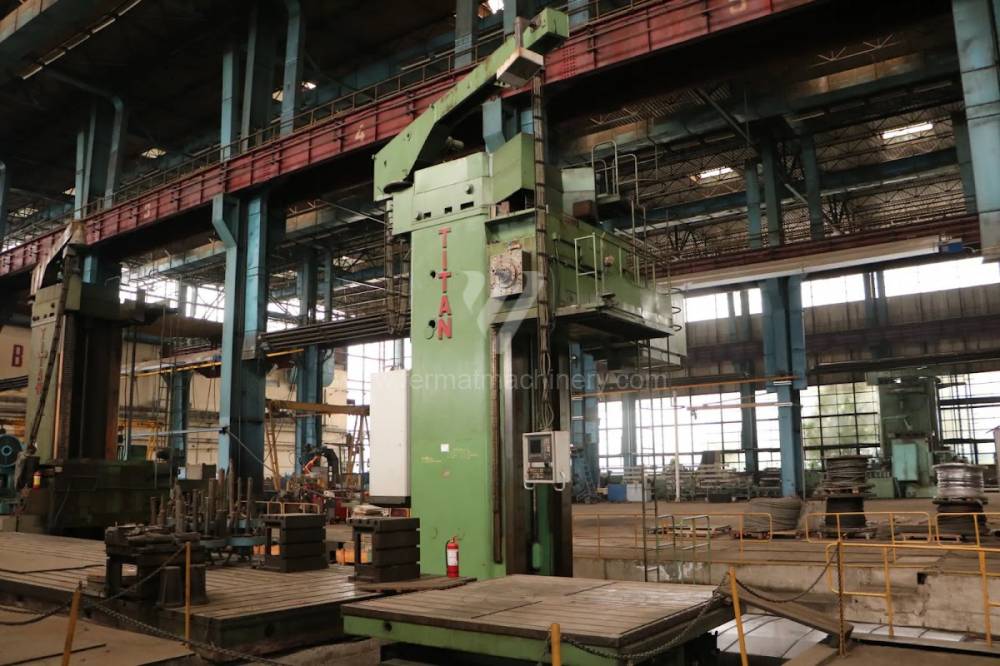 |
AFP 180 |
241053 | Titan | Système de contrôle Siemens: Sinumerik 840 D Diametre de travaille de broche: 180 mm Course X: 18 000 mm Course Y: 3 200 mm Vitesse de broche: 2 - 420 /min. Extension du curseur (W): 1 350 mm |
||
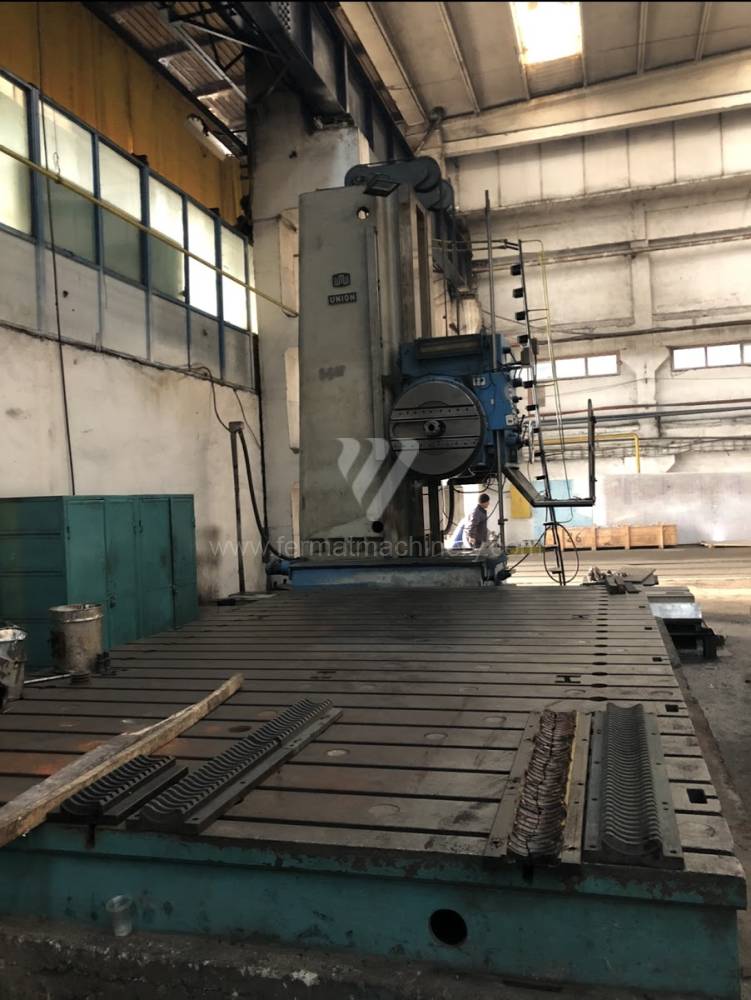 |
BFK 160 |
201580 | UNION | 1980 | Diametre de travaille de broche: 160 mm Course X: 3000 mm Course Y: 2700 mm Vitesse de broche: - /min. Refroidissement par axe: Extension du curseur (W): 300 mm |
|
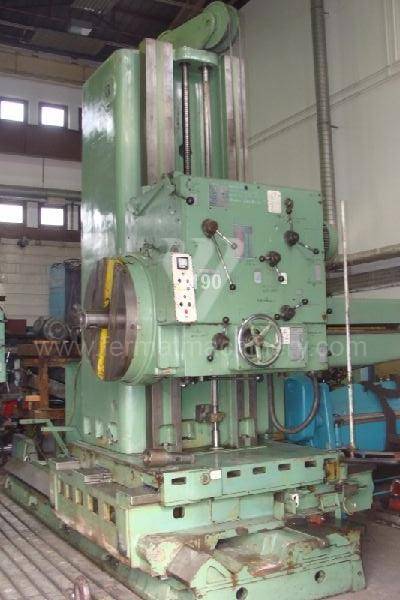 |
BFP 125/III |
141498 | UNION | 1980 | Diametre de travaille de broche: 125 mm Course X: 2500 mm Déplacement de la broche sur le support (Y): 1600 mm Extension du curseur (W): 1120 mm Cone de la broche: MK7 . Puissance du moteur principal: 17 kW |
|
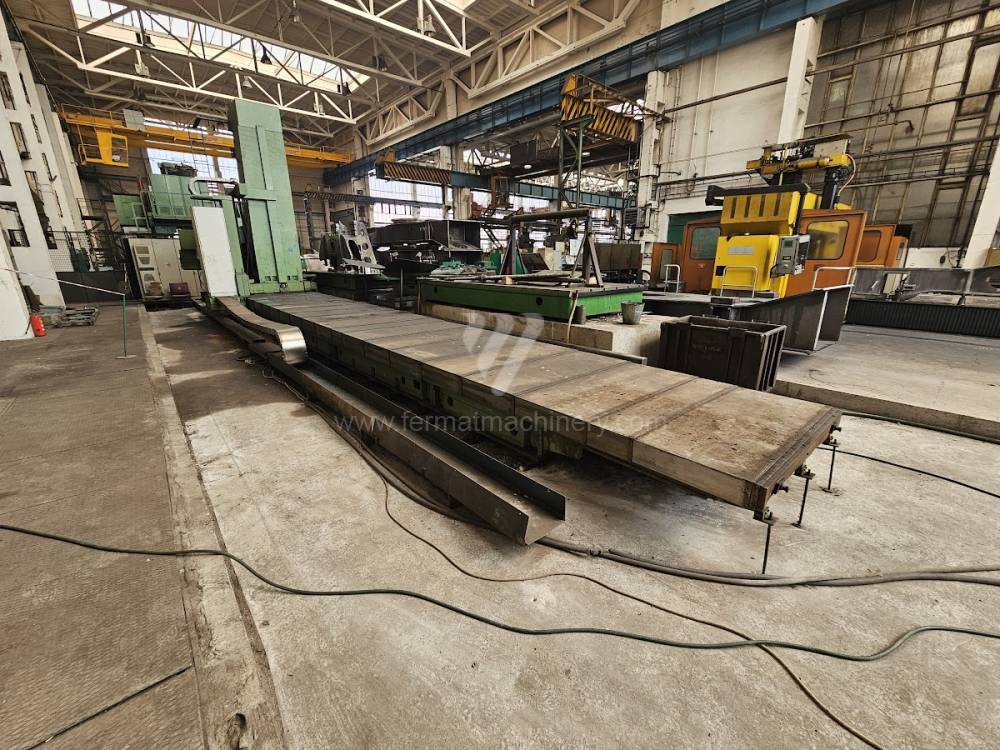 |
BFP 130 CNC |
241458 | UNION | 1992 | Système de contrôle Heidenhain: TNC 530 Diametre de travaille de broche: 130 mm Course X: 10000 mm Course Y: 3000 mm Vitesse de broche: 1200 - /min. Extension du curseur (W): 770 mm |
|
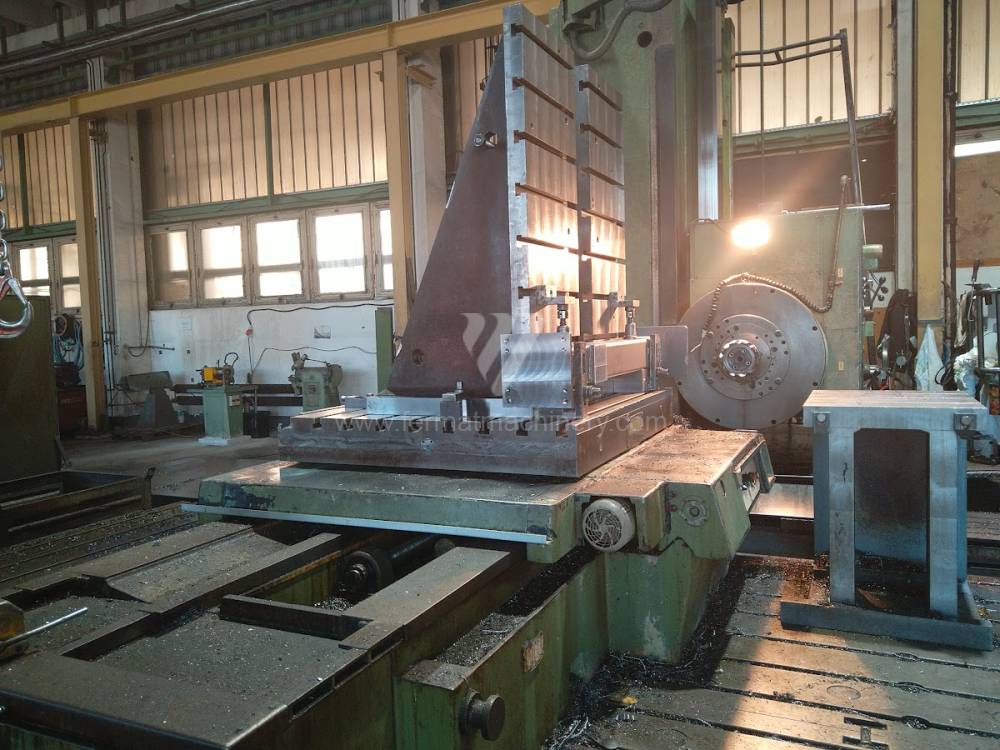 |
BFP 130/6 |
231957 | UNION | Diametre de travaille de broche: 130 mm Course X: 6000 mm Course Y: 1650 mm Vitesse de broche: 4 - 900 /min. Extension du curseur (W): 400 mm Refroidissement par axe: NON |
||
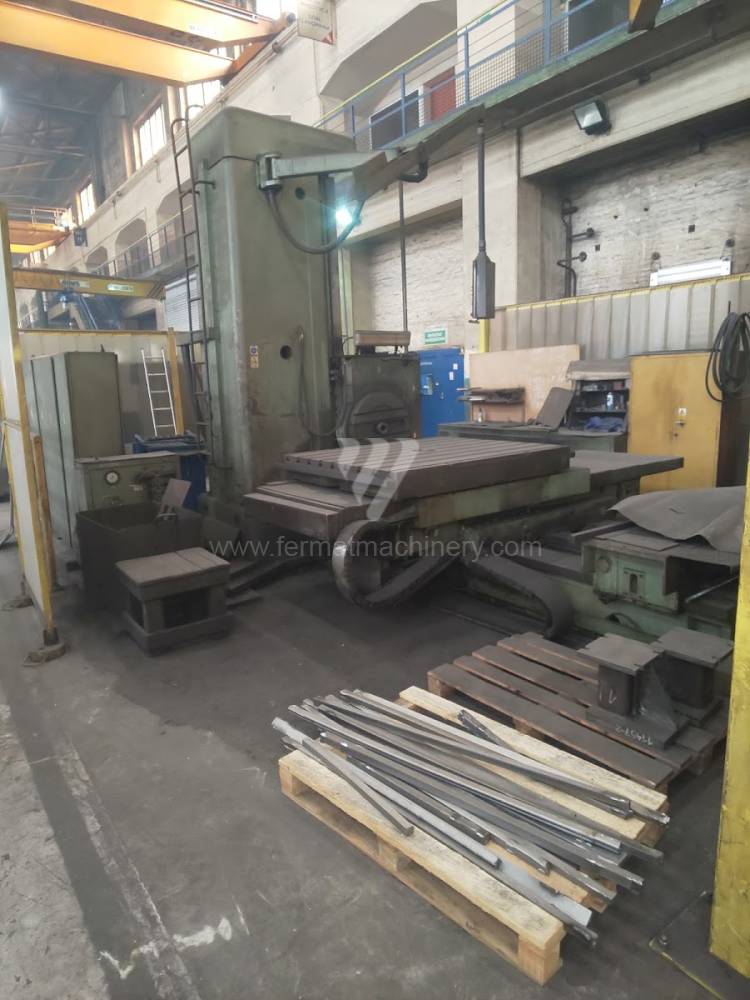 |
BFT 110/5 |
231231 | UNION | Course X: 1985 mm Course Y: 1270 mm Course Z: 1270 mm Poids totale de la machine: 25400 kg Dimensions de la table: 1400 x 1600 mm Diametre de travaille de broche: 110 mm |
||
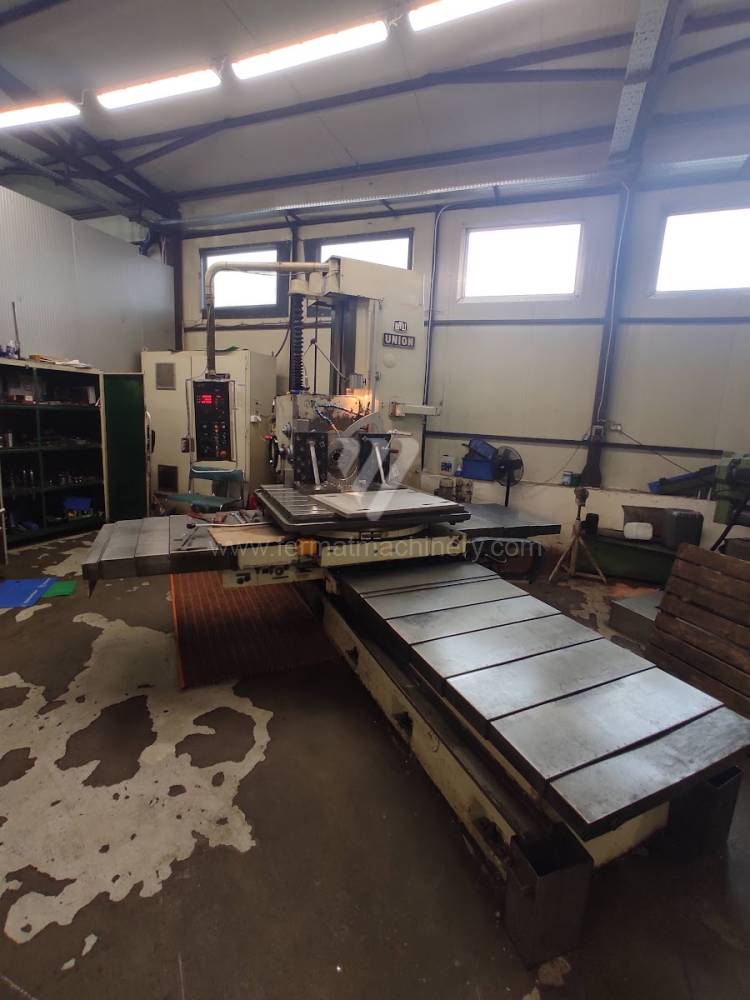 |
BFT 90/3 |
241213 | UNION | 1981 | Système de contrôle Heidenhain: Diametre de travaille de broche: 90 mm Course X: 1600 mm Course Y: 1210 mm Vitesse de broche: 4 - 1600 /min. Refroidissement par axe: |
|
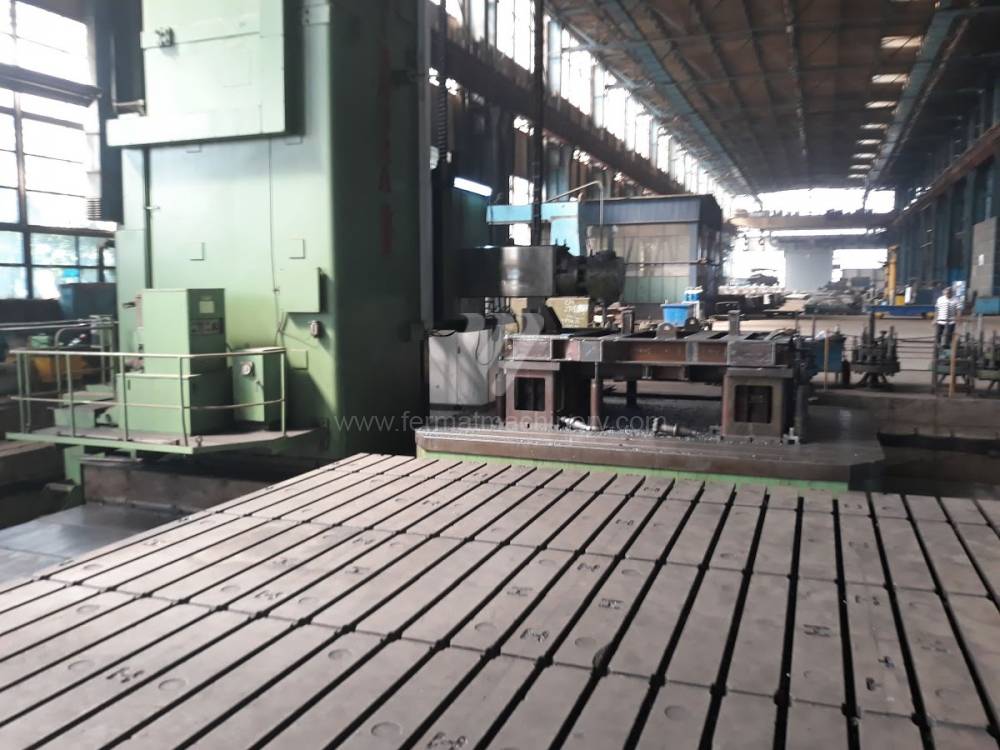 |
BSF 34/23A NC |
201654 | SHIBAURA | 1979 | Système de contrôle Siemens: Sinumerik 840D Sl Diametre de travaille de broche: 230 mm Course X: 13000 mm Course Y: 5000 mm Vitesse de broche: 0 - 420 /min. Extension du curseur (W): 1500 mm |
|
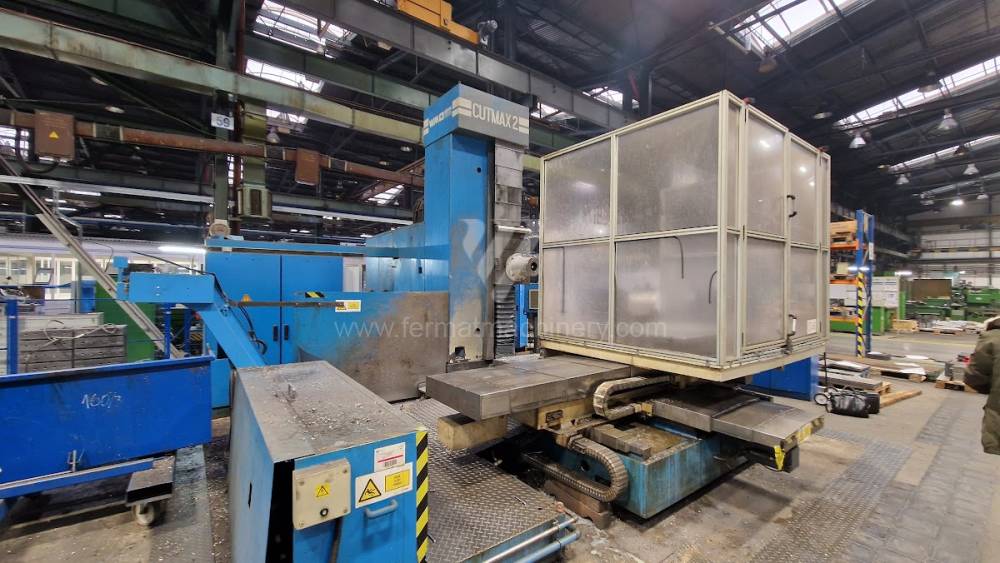 |
CUTMAX 2 |
231026 | Wotan | Système de contrôle Heidenhain: TNC 426 Diametre de travaille de broche: 120 mm Course X: 1800 mm Course Y: 1700 mm Vitesse de broche: 20 - 3000 /min. Refroidissement par axe: OUI |
||
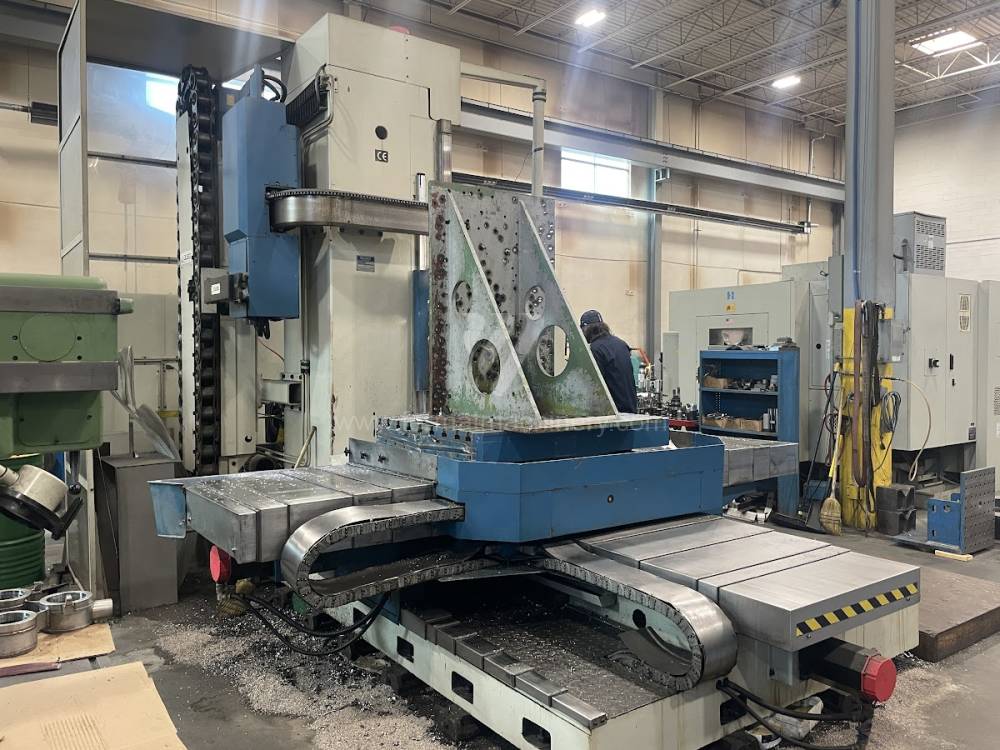 |
DBM 100 N |
231421 | DEFUM | 1999 | Système de contrôle Fanuc: 16-M Diametre de travaille de broche: 100 mm Course X: 1830 mm Course Y: 1500 mm Vitesse de broche: 5 - 2000 /min. Refroidissement par axe: NON |
|
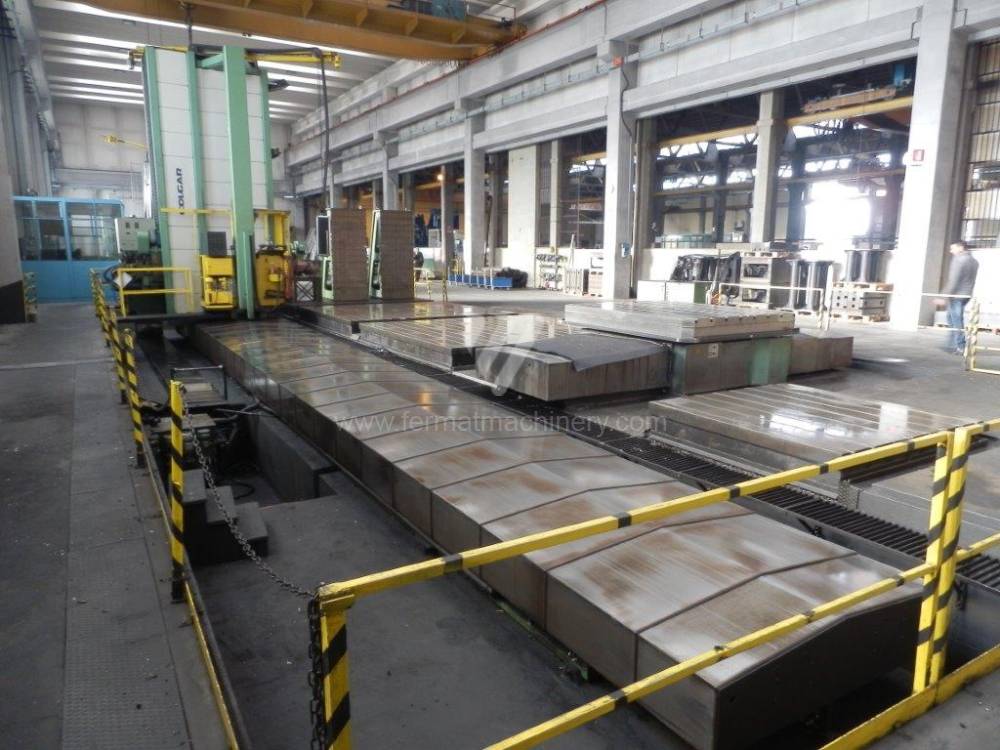 |
FRAL 70C16 |
241059 | Colgar International S.r.l. | 1989 | Système de contrôle ECS: Diametre de travaille de broche: 160 mm Course X: 15500 mm Course Y: 1000 mm Vitesse de broche: 0 - 1500 /min. Extension du curseur (W): 800 mm |
|
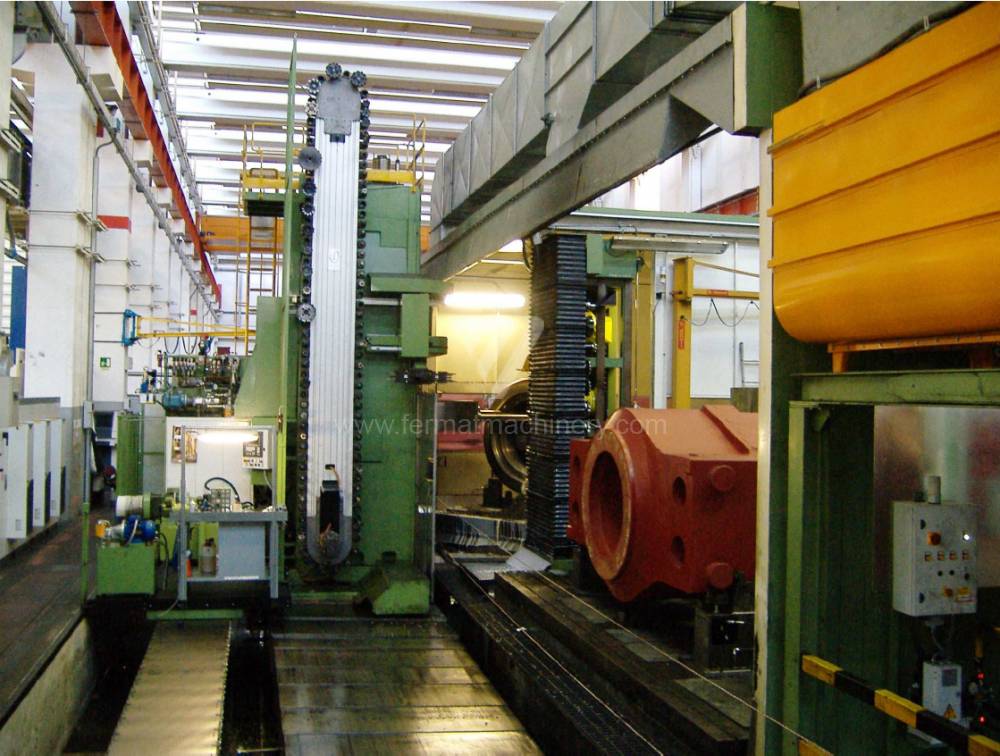 |
FT 180/A |
241439 | PAMA | Système de contrôle Siemens: Sinumerik 840 D Diametre de travaille de broche: 180 mm Course X: 12000 mm Course Y: 3200 mm Vitesse de broche: 0 - 1000 /min. Extension du curseur (W): 1000 mm |
||
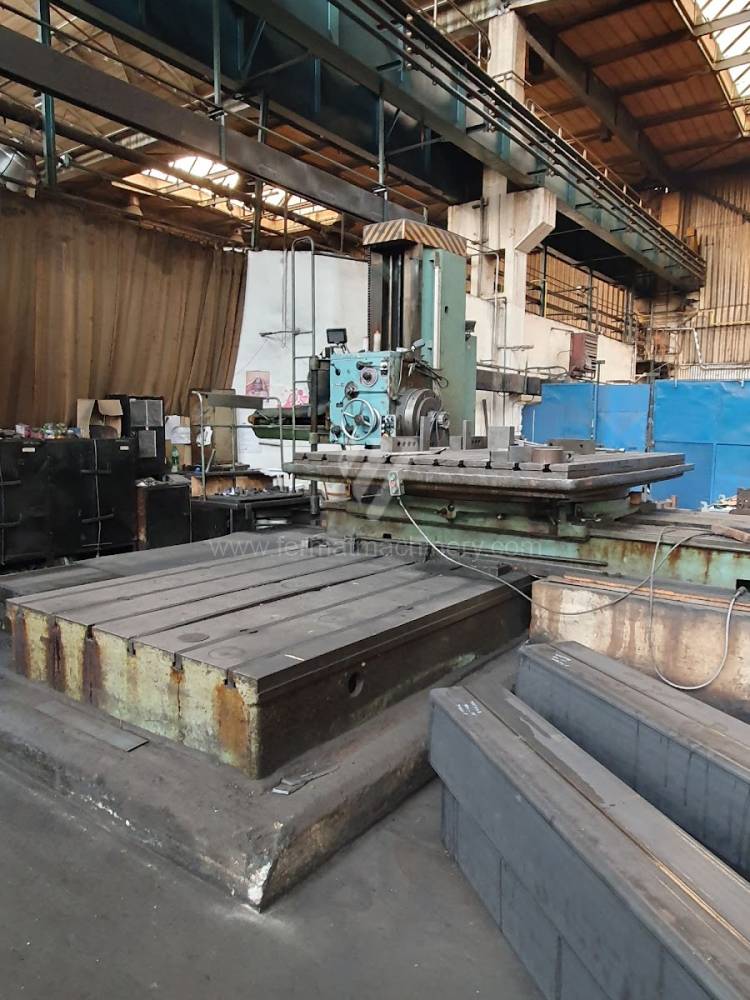 |
HP 100 |
241262 | TOS Varnsdorf | 1967 | Diametre de travaille de broche: 100 mm Course X: 3000 mm Course Y: 1600 mm Vitesse de broche: 7 - 1120 /min. Extension du curseur (W): 900 mm Refroidissement par axe: NON |
|
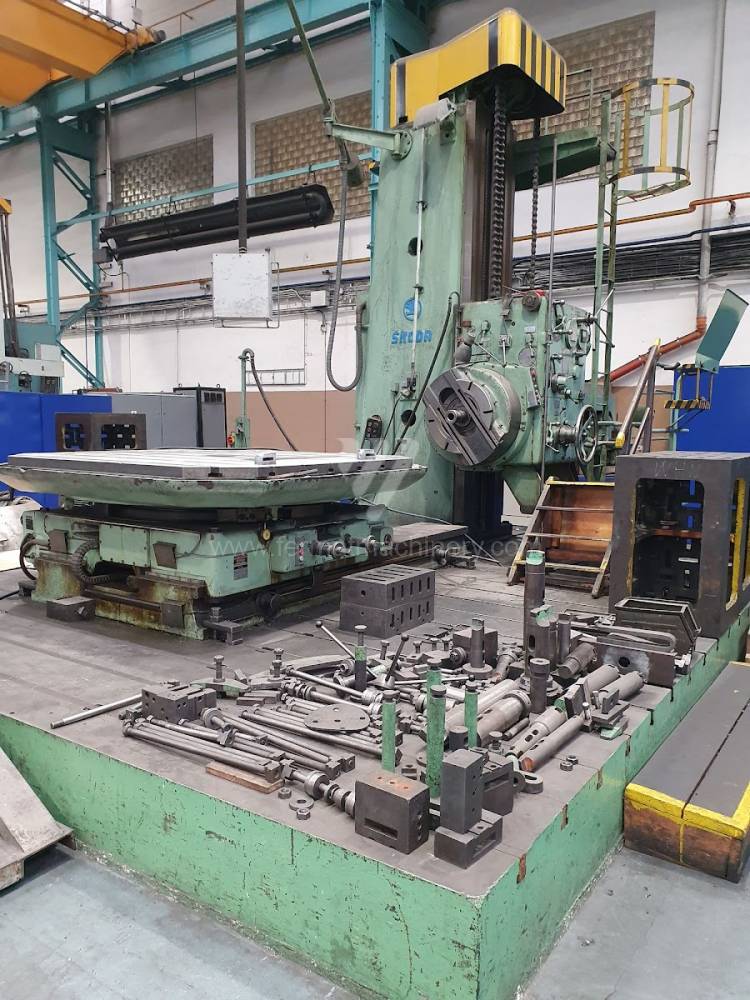 |
HVF 160 D |
241231 | ŠKODA MACHINE TOOL a.s. | 1952 | Diametre de travaille de broche: 160 mm Course X: 3000 mm Course Y: 2000 mm Vitesse de broche: 2 - 450 /min. Extension du curseur (W): 1200 mm Refroidissement par axe: NON |
|
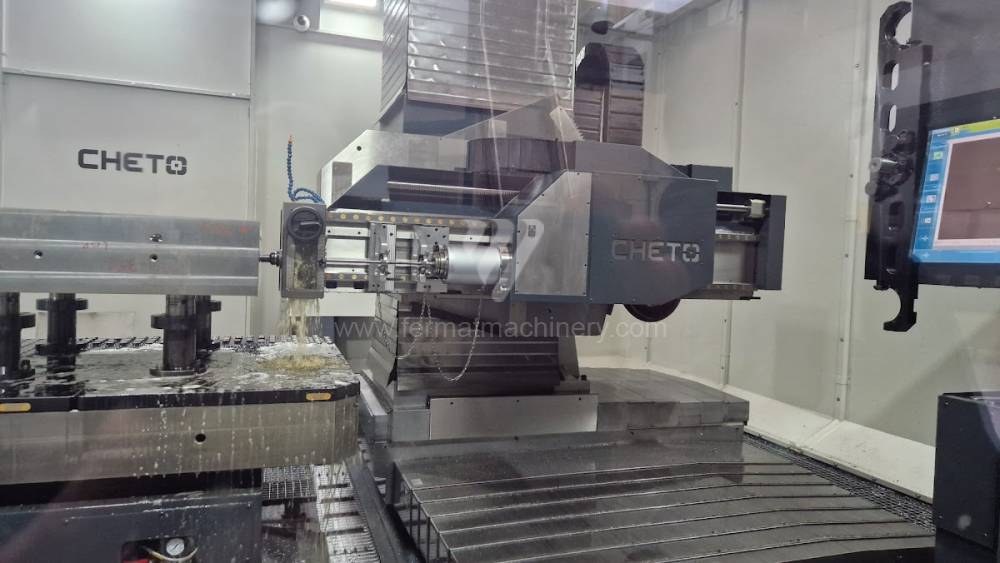 |
IXN2000 |
241206 | CHETO | 2022 | Système de contrôle Fagor: CNC 8065 Diametre de travaille de broche: mm Course X: 2000 mm Course Y: 1200 mm Vitesse de broche: 0 - 6000 /min. Refroidissement par axe: |
|
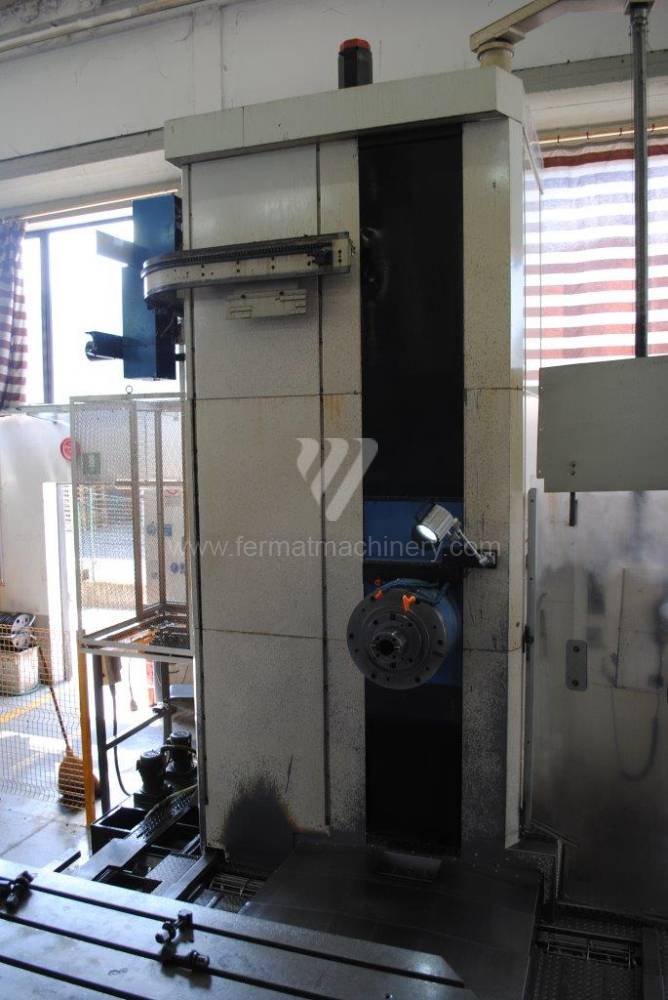 |
KBN 135 |
241058 | KIA | 2003 | Système de contrôle Fanuc: 16-M Diametre de travaille de broche: 135 mm Course X: 3000 mm Course Y: 2000 mm Vitesse de broche: 5 - 2000 /min. Refroidissement par axe: OUI |
|
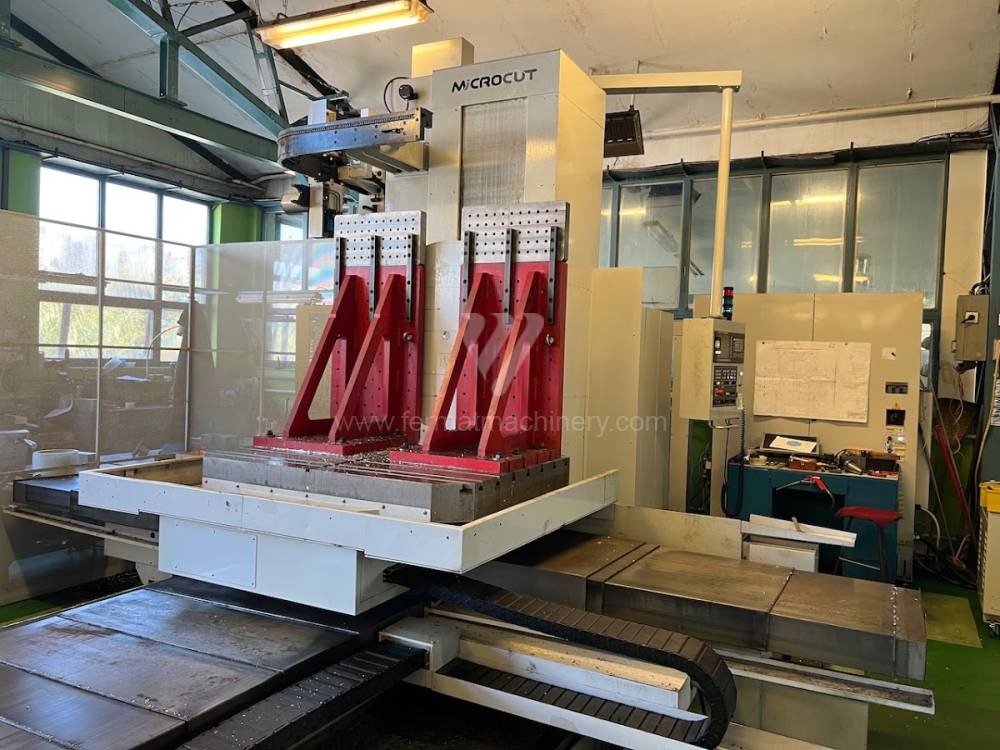 |
Microcut HBM-4 |
221640 | Buffalo Machinery | 2017 | Système de contrôle Fanuc: 31i - B Diametre de travaille de broche: 110 mm Course X: 2200 mm Course Y: 1600 mm Vitesse de broche: 35 - 3000 /min. Refroidissement par axe: OUI |
|
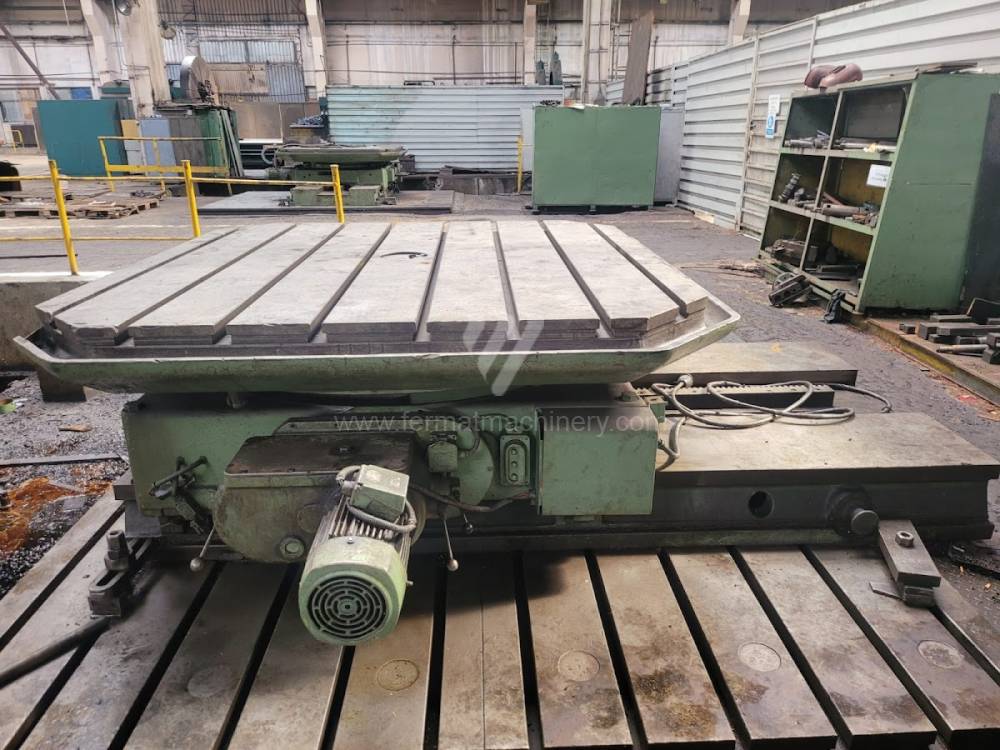 |
MRD E 20 |
231373 | ŠKODA MACHINE TOOL a.s. | Surface de serrage de la table tournante: 2000 x 2000 mm Charge maxi sur la table: 20 000 kg Deplacement maxi de la table: 1 200 mm Poids d´équipment: 9 350 kg |
||
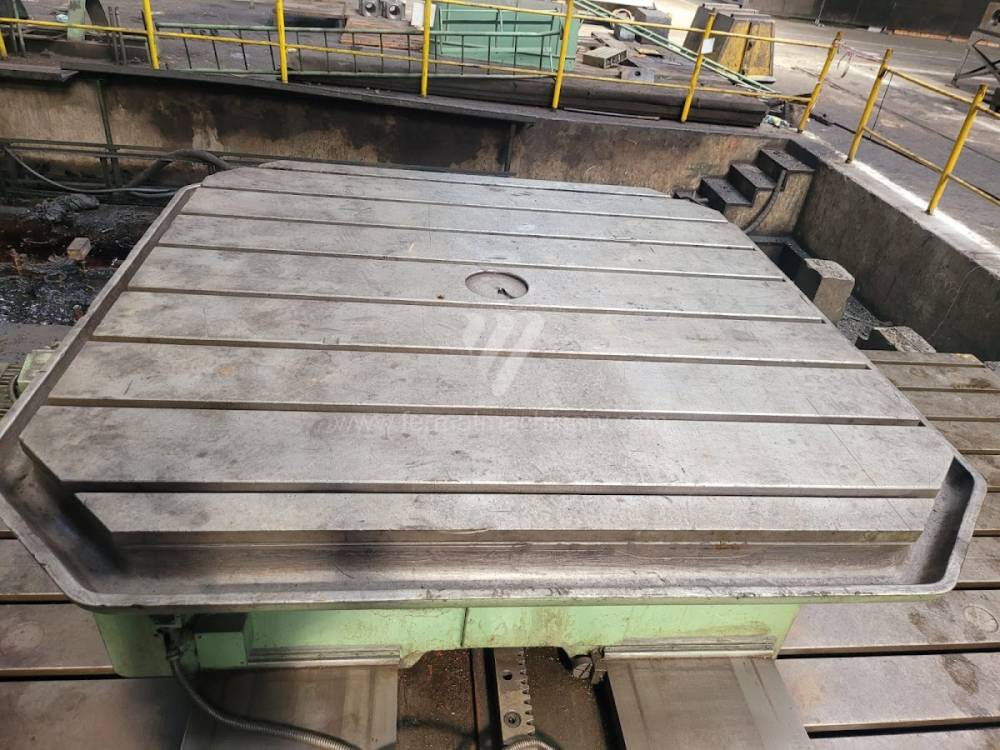 |
MRD E 20 |
231374 | ŠKODA MACHINE TOOL a.s. | Surface de serrage de la table tournante: 2000 x 2000 mm Charge maxi sur la table: 20 000 kg Deplacement maxi de la table: 1 200 mm Poids d´équipment: 9 350 kg |
Horizontal boring machines are universal machines used for machining of complex products. These borers are mainly used for small batch production. For one workpiece clamping, the operation can be performed from up to five sides, either simultaneously or sequentially. A large number of standard and special accessories are available for horizontal boring machines. This makes boring machines suitable not only for boring, but also for drilling, turning, milling and other operations.
Horizontal boring machines can be divided into several types, such as: table, cross, plate, coordinate. Can be divided also according to the type of control - conventional (without system), or CNC controlled.
Table boring machines are equipped with a movable table that moves in one or two axes. Depending on this, boring machines are further divided into cross-construction or T-construction. The table is usually rotary (B axis), which allows four sides of the workpiece to be machined in one clamp. However, if the machine is equipped with an angle head (A and C axes) and the workpiece does not exceed the dimensions of the machine, five sides can be machined in one clamp. The boring milling machines differ from the table milling machines in particular by the extendable spindle (W axis). Higher series often also have a movable headstock (V axis).
These kinds of boring machines are suitable and used for machining of the largest workpieces. Headstock is moving along the vertical guide of the column and column itself is moving along the bed perpendicular to the axis of the spindle. The workpiece is clamped immovably on a cast-iron floor plate equipped with T-slots. If this floor type boring machine is equipped with a rotary table which is movable in the direction of the spindle axis, the number of controlled axes increases. Such boring machines mainly have a boring spindle diameter of 130-315 mm.
So-called coordinate boring machines are used for machining precise holes. Its design is affected by the requirements for very high accuracy of all movements, good dynamics and the best possible temperature stability. There are two types of these machines. One-column borer with horizontal or vertical spindle axis (this is for smaller sizes of workpieces that are clamped on a cross table) and two column borer with one or more vertical spindles. Workpiece is clamped on a longitudinal table, which is in between two columns along which the crosspiece carrying the work headstock moves. An optical system is usually used for measuring. More modern machines are then equipped with a CNC control system.
All types of horizontal boring machines are conventional or CNC controlled. Among the most popular producers of CNC systems are Heidenhain, Siemens, Fanuc, Fagor.
Horizontal boring machines can be also equipped with automatic tool change which is primarily used for storage of tool holders, its manipulation and positioning without participation of human factor.
Among the main and most popular manufacturers of boring mills we have to mention: FERMAT, TOS, ŠKODA, PAMA, UNION, JUARISTI, SCHARMANN, KURAKI, WOTAN.